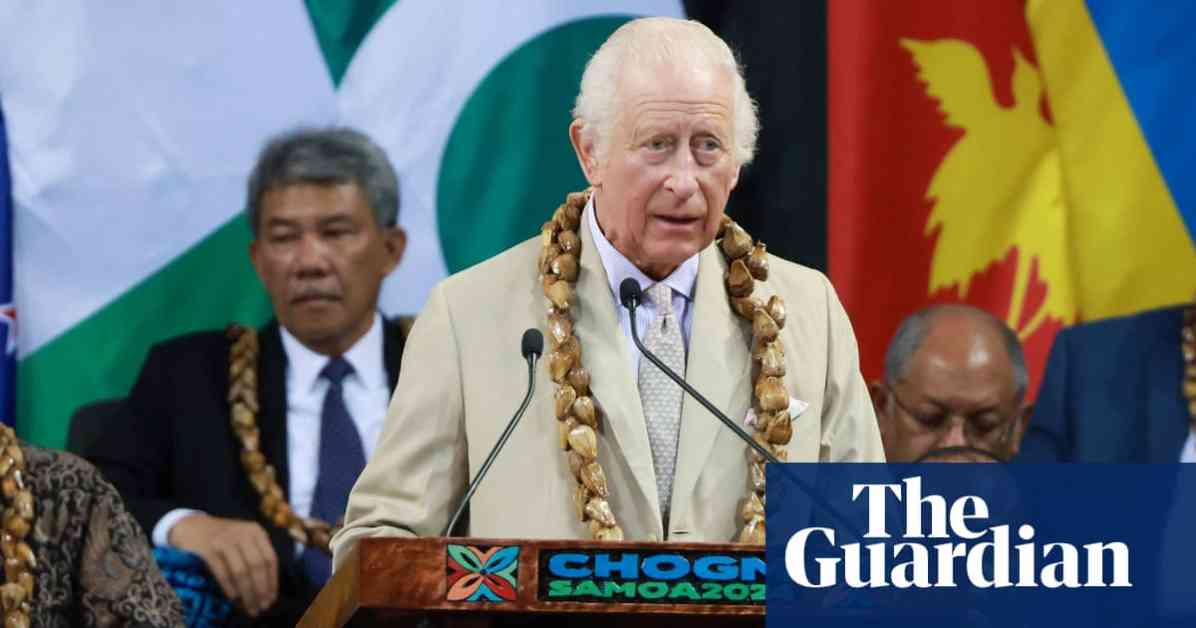King Charles addressed the leaders of the Commonwealth nations at the Chogm summit in Samoa. He acknowledged the painful aspects of Britain’s past but did not directly address calls for reparations for slavery. Some leaders had hoped for an apology for Britain’s colonial past and a discussion on reparatory justice.
Charles emphasized the importance of understanding history to guide future decisions and stressed the need to address inequalities with the right language. While some African and Caribbean nations have called for financial compensation for slavery, British Prime Minister Keir Starmer indicated openness to non-financial reparations, such as restructuring financial institutions and providing debt relief.
The Bahamas’ Prime Minister Philip Davis highlighted the importance of having a dialogue about historical wrongs and the ongoing fight for justice and reparatory justice. He mentioned the deep generational wounds left by slavery and the need for a meaningful conversation about addressing these issues.
Ralph Gonsalves, the prime minister of St Vincent and the Grenadines, emphasized the need for a reparative justice plan that addresses the enduring impact of slavery on psychological and socioeconomic levels. He pointed out that while enslavers were compensated at abolition, those who had been enslaved and oppressed received nothing to help them rebuild their lives.
Patricia Scotland, the outgoing secretary-general of the Commonwealth, acknowledged the concerns about colonial legacies and highlighted the importance of recognizing the enduring impact of centuries of exploitation. Joshua Setipa from Lesotho suggested that reparations could include non-traditional forms of payment, such as climate financing, to address past injustices.
In his speech, King Charles also paid tribute to Queen Elizabeth and her commitment to the Commonwealth. He emphasized the need for action to address development challenges and the climate crisis to prevent further inequalities and potential conflict across the Commonwealth and beyond. The discussions at the summit reflect a growing recognition of the need to address historical injustices and work towards a more equitable future for all nations involved.












